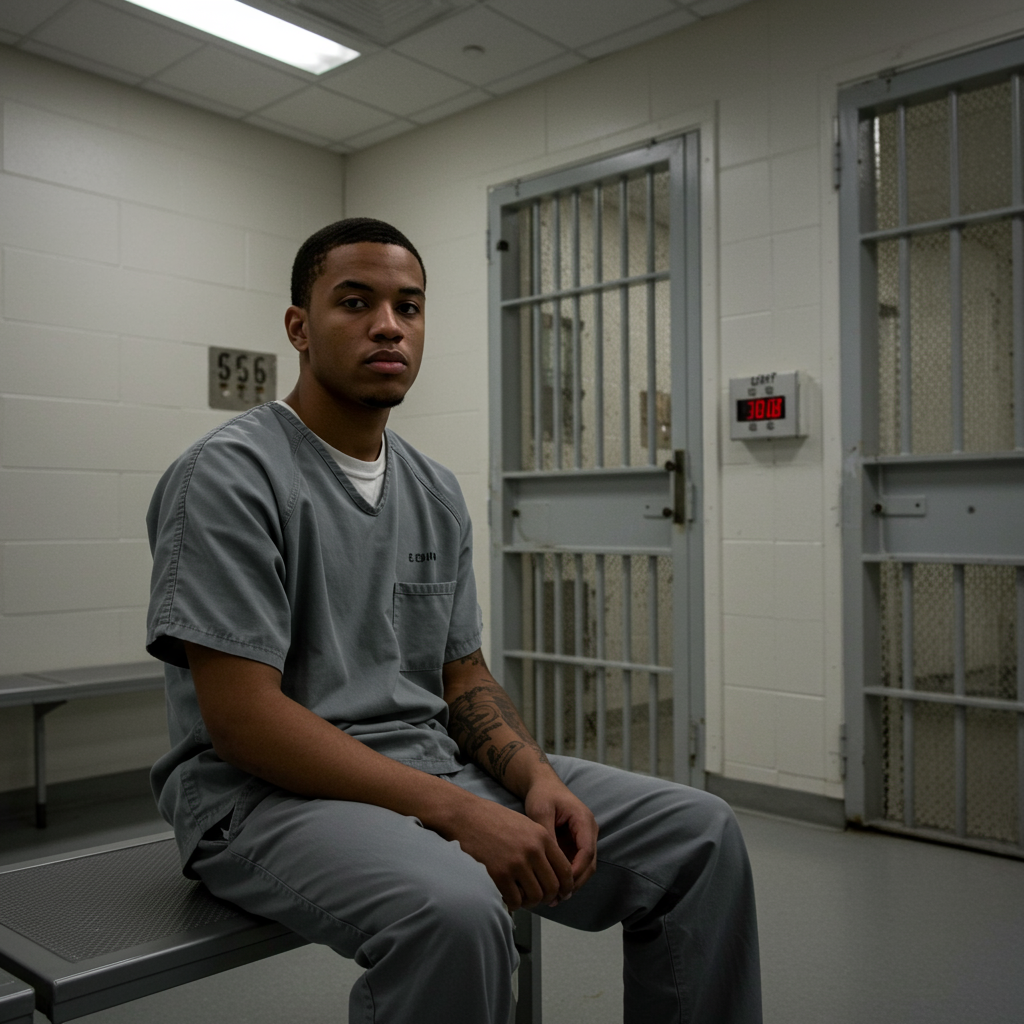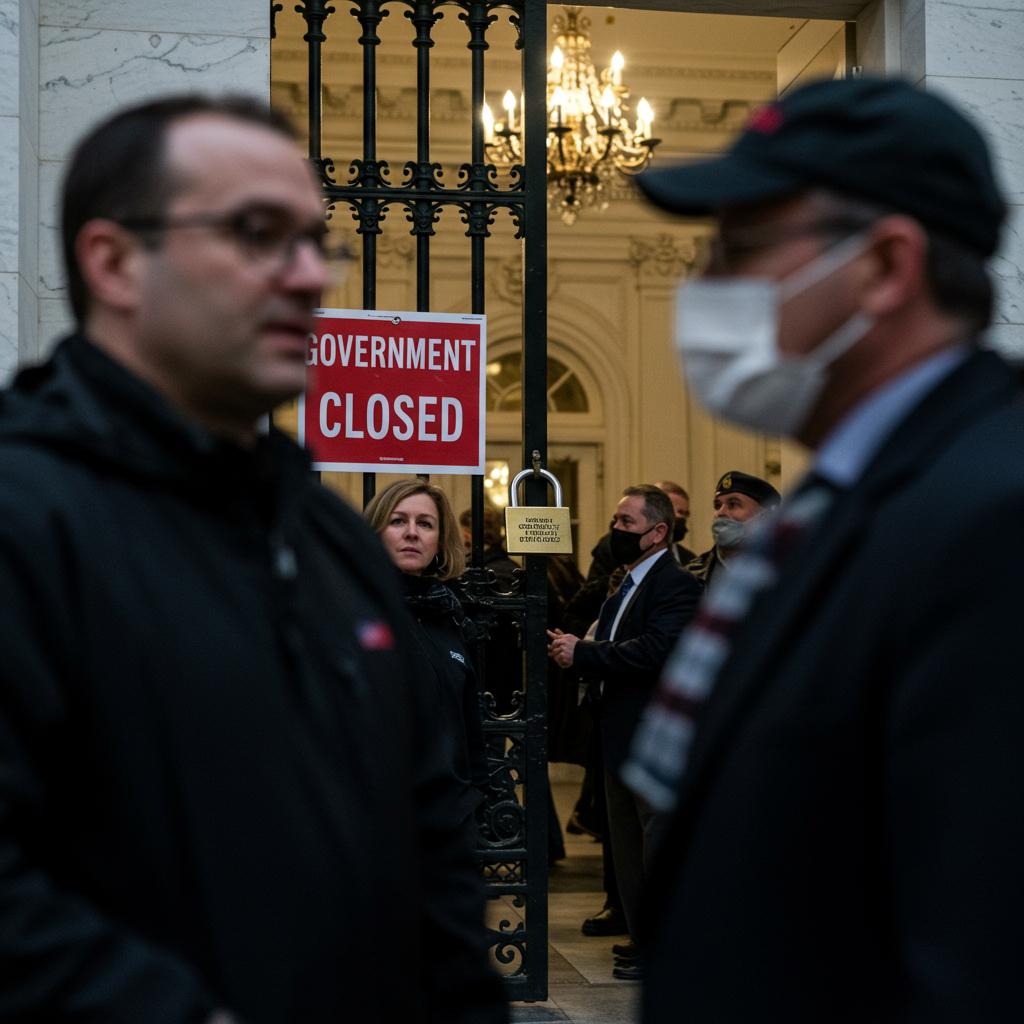The individual accused of the fatal shooting of conservative activist Charlie Kirk at Utah Valley University is now under stringent observation within a special housing unit. Tyler Robinson, 22, faces serious charges following the high-profile incident, and his current detainment involves continuous monitoring as authorities prioritize his mental health and safety. This critical period in custody marks the initial phase of a complex legal journey, drawing national attention to the circumstances surrounding Kirk’s death and the subsequent investigation.
Suspect’s Custody: “Special Watch” and Mental Health Evaluation
Tyler Robinson, apprehended in connection with the Charlie Kirk assassination, remains isolated in the Utah County Jail’s Special Housing Unit (SHU). This “special watch” status is a crucial precautionary measure. Jail officials are closely monitoring Robinson around the clock, with staff checks occurring every 15 minutes. This heightened surveillance is standard protocol for high-risk detainees, particularly those for whom there are concerns about self-harm or violent behavior.
Initial Booking and Housing Protocols
Upon his arrest, Robinson was immediately placed in the SHU. This temporary housing decision allows jail staff, including mental health professionals, ample time to conduct a thorough evaluation. The aim is to assess any risk of self-harm or potential danger to others before he is moved to a more permanent housing assignment. The Utah County Sheriff’s Office emphasizes its commitment to the safety of all detainees and staff, a principle guiding these rigorous housing decisions. Robinson was booked on charges that include aggravated murder, felony discharge of a firearm, and obstruction of justice.
Suicidal Concerns and Constant Monitoring
A significant factor contributing to Robinson’s “special watch” status is his reported suicidal ideation. Law enforcement sources indicated that Robinson allegedly told his father he would rather take his own life than surrender to police. This alarming revelation underscores the necessity for constant vigilance. The SHU offers intensified supervision, combining increased manpower with comprehensive security camera coverage. This detailed monitoring system aims to prevent any harm to Robinson while the intricate legal proceedings against him commence.
The Assassination of Charlie Kirk: A Targeted Attack
On Wednesday, September 10, 2025, Charlie Kirk, the 31-year-old co-founder of Turning Point USA, was fatally shot while addressing a large crowd. The incident occurred during his “American Comeback tour” at Utah Valley University in Orem, Utah. Officials quickly labeled the event a “targeted attack,” which sent shockwaves through both political and educational communities, prompting widespread condemnation.
Day of the Shooting: Campus and Crime Scene
The fatal shot struck Kirk in the neck at approximately 12:23 p.m. Surveillance footage captured the shooter on the rooftop of the Losee Center, a building overlooking the UVU courtyard. Investigators believe this rooftop served as the sniper’s nest. After firing a single shot from a high-powered, bolt-action rifle, a Mauser .30-06-caliber, the assailant was seen fleeing across the roof. The individual then climbed down the building, leaving behind palm impressions for DNA analysis, and escaped into a wooded area on campus. The rifle, wrapped in a towel, was later recovered in this same wooded vicinity.
Kirk’s Profile and Political Context
Charlie Kirk was a prominent and often polarizing figure in conservative youth activism. Known for his “Prove Me Wrong” debates and extensive college campus tours, he had a significant social media presence and hosted “The Charlie Kirk Show.” He was a close ally of former President Donald Trump, credited with mobilizing younger conservative voters. Kirk’s public persona included promoting false claims about the 2020 election, expressing skepticism about COVID-19, advocating anti-trans rhetoric, and amplifying the “Great Replacement” conspiracy theory. His death sparked an immediate political response, with Utah Governor Spencer Cox and former President Donald Trump both characterizing the shooting as a “political assassination.” Kirk is survived by his wife, Erika, and their two young children.
The Manhunt and Apprehension of Tyler Robinson
Following the shooting, a 33-hour manhunt ensued, intensifying the urgency to locate the perpetrator. Federal authorities offered a $100,000 reward for information leading to an arrest, generating over 11,000 leads from the public. This extensive search ultimately led to the apprehension of Tyler Robinson.
Father’s Role and Suspect’s Surrender
A pivotal moment in the manhunt involved Tyler Robinson’s father, Matt. He recognized his son from surveillance video images released by the FBI. Upon confronting his son, Robinson reportedly confessed to his father but initially expressed a desire for suicide rather than surrender to authorities. His father, along with a family minister and a court security officer, intervened to calm him. This intervention ultimately led to U.S. Marshals detaining Robinson, with the FBI subsequently taking him into custody on Friday, September 12, 2025. This family intervention proved critical in ending the manhunt peacefully.
Discord Messages and Vehicle Seizure
Further investigation revealed details about Robinson’s actions and communications post-shooting. In a Discord group chat with approximately 20 individuals, Robinson allegedly joked about the shooting, claiming it was his “doppelganger” trying to “get him in trouble.” When a chat member suggested turning him in for the FBI reward, Robinson reportedly responded with a sneer, “Only if I get a cut.” Law enforcement also seized Robinson’s dark gray Dodge Challenger, the vehicle believed to have been driven to campus hours before the shooting. It was found outside his parents’ home in Washington, Utah, shortly after his arrest. Authorities have explicitly stated that Robinson acted alone in the shooting.
Legal Ramifications: Charges, Motive, and Future Proceedings
Tyler Robinson now faces a series of grave legal challenges following his arrest. His initial charges include aggravated murder, felony discharge of a firearm causing serious bodily injury, and obstruction of justice. Formal charges are expected to be filed on Tuesday, September 16, 2025, potentially followed by his first court appearance that same afternoon.
Formal Charges and Aggravated Murder
The charge of aggravated murder is particularly significant in Utah, as it is the only charge that carries the possibility of the death penalty. Utah County Attorney Jeff Gray is currently reviewing the evidence to build the prosecution’s case. The complexities surrounding such a high-profile case raise questions about whether federal prosecution will also be pursued alongside state charges. A former prosecutor, Nathan Evershed, commented that he “would not be surprised if the federal government wanted to step in,” given the national attention on the assassination.
The Death Penalty Debate and Competency Concerns
While Governor Spencer Cox has publicly expressed the State’s intention to seek the death penalty, legal experts caution that securing such a sentence is not “clear-cut.” Achieving a capital punishment conviction requires proving an “aggravating factor” under the aggravated murder statute. Evershed suggests the defense will likely argue against the presence of such a factor, providing an example like “knowingly created a grave risk of death to another individual.” Furthermore, Evershed predicts the defense will “for sure” introduce a competency argument, indicating Robinson’s mental state will be a major point of contention. The unusual nature of the crime itself makes a thorough examination of his mental health highly probable.
Unraveling the Motive: Ideology and Evidence
While authorities have not yet explicitly stated a definitive motive, several details point towards a politically charged act. Governor Cox reported that Robinson’s family stated he had become “more political” in recent years and was “deeply indoctrinated with leftist ideology.” Robinson reportedly expressed his dislike for Kirk to his family. Investigators also recovered multiple bullet casings at the scene with unusual and politically suggestive inscriptions. The fired casing read, “Notices Buldge OWO what’s this?”; unfired casings bore phrases such as “hey fascist! CATCH! [arrows],” “O Bella ciao, Bella ciao, Bella ciao, Ciao, ciao!”, and “If you read This, you are GAY Lmao.” These phrases suggest a complex and potentially ideologically driven mindset behind the alleged assassination.
Broader Impact and Condemnation
The assassination of Charlie Kirk has reverberated far beyond Utah, prompting national mourning and political debate. Flags flew at half-staff outside the Utah County Security Center, a visible sign of the gravity of the event. The White House released an “emotional video tribute” in Kirk’s memory, and his wife, Erika, spoke publicly for the first time since his death. A public funeral for Kirk is scheduled for Sunday, September 21, 2025, at State Farm Stadium in Glendale, Arizona, indicating the widespread impact and the prominence of his role in conservative circles. The incident has reignited discussions about political violence and ideological polarization in the United States.
Frequently Asked Questions
What are the current charges against Tyler Robinson in the Charlie Kirk assassination case?
Tyler Robinson is currently booked on serious charges including aggravated murder, felony discharge of a firearm causing serious bodily injury, and obstruction of justice. Formal charges are expected to be officially filed on Tuesday, September 16, 2025. Aggravated murder is particularly significant as it is the only charge in Utah that carries the possibility of the death penalty.
Where did the Charlie Kirk assassination take place and what were the circumstances?
Charlie Kirk was fatally shot on Wednesday, September 10, 2025, at Utah Valley University (UVU) in Orem, Utah. He was speaking to a crowd during a Turning Point USA event as part of his “American Comeback tour.” The alleged shooter, Tyler Robinson, fired a single shot from a rifle while positioned on the rooftop of the Losee Center, a building overlooking the university courtyard.
What are the legal challenges in pursuing the death penalty for Robinson, and will his mental state be a factor?
Pursuing the death penalty for Tyler Robinson faces significant legal hurdles, as it requires proving an “aggravating factor” under Utah’s aggravated murder statute. Legal experts anticipate the defense will likely contest the presence of such a factor. Additionally, it is highly probable that Robinson’s mental state will be a central component of his defense, with attorneys expected to introduce a competency argument given the unusual nature of the crime.
Conclusion
The “special watch” status for Tyler Robinson underscores the immediate concerns for his well-being and the careful management of a high-profile suspect. As Robinson undergoes mental health evaluations and awaits formal charges, the legal system prepares for a complex and closely watched trial. The assassination of Charlie Kirk, an impactful figure in conservative politics, has ignited national conversations about political violence and the deeply divided ideological landscape. The ongoing investigation and subsequent legal proceedings will undoubtedly shed further light on the details, motive, and broader implications of this tragic event, with many looking for answers and justice.



